Starting university is a daunting and life defining moment. The University of Sydney is a very large institution with a wide range of disciplines on offer and a very diverse student population. This size and diversity offer huge opportunities and challenges for new students. Unfortunately, many feel that they do not fit or belong during the crucial first few weeks. Transition is hugely important in determining whether a student’s time here will be successful and enjoyable.
Students’ sense of belonging is closely associated with their ratings on the overall quality of their educational experience at the University. The quality of students’ interactions with each other and with their teachers, and the overall quality of the transition experience are the most important factors in developing a sense of belonging. To feel part of the new institution that they have just joined, it is critical that students feel that their teachers care and can be approached. Relationship-rich experiences with their lecturers and tutors help students feel valued and connected to the University and the disciplines in which they choose to focus. Because of the size of our institution and the rush of the first few weeks, such experiences may need to be deliberately built to ensure that all students have the opportunity to develop their sense of belonging.
Relationship-rich experiences with their lecturers and tutors help students feel valued and connected to the University and the disciplines…
The activity described here is one of those being trialled in a number of units this semester as part of the pilot of transition units for undergraduates. It aims to encourage teachers and students to share and reflect in a meaningful and reflective way on their own journeys to the University. In doing so, students get to know their teacher and each other through discussion of shared and their own unique experiences. Teachers can reflect on their own transition experience. It is designed to draw out the benefits of a diverse cohort and build lasting and purposeful connections with a shared sense of purpose. It can be combined with an Acknowledgement of Country to recognise the unique places on which our campuses are built and the ongoing connection of the traditional owners with its values and culture.
My journey to Sydney
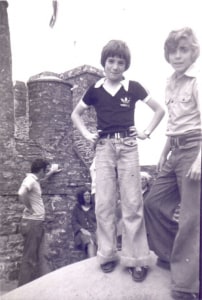
I was born and grew up in Swindon, a medium-size town situated between London and Bristol in South West England. At some point in Secondary School, I fell in love with chemistry (it’s possible) and ended up studying a BA in it at St Catherines College, University of Oxford. From there, I spent a year studying to teach high school science at the University of Birmingham. The experience of trying to engage 14 year olds with balancing chemical equations led me to a PhD in inorganic chemistry at Trinity Hall, University of Cambridge. During my PhD and then employment as a College Lecturer at Newnham College, I ended up spending most of my time taking tutorials (or “supervisions” as Cambridge called them) or covering my PhD supervisor’s lectures, partly to pay childcare and housing costs and partly because I developed a love of teaching. After failing to land a continuing role at Cambridge, I took up a lectureship at the University of Hull. Blackadder would have been proud of me.
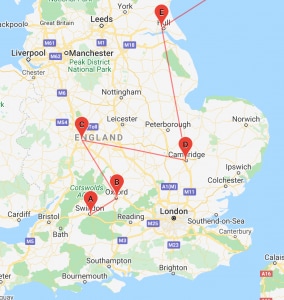
My first few years at Hull corresponded to a big downturn in the number of students choosing to study Chemistry in the UK. With departments as prestigious as those at King’s College, London and Exeter closing down, I was asked to take on a role as Director of Recruitment. University admissions run in a very different way in the UK and, through a combination of curriculum reforms, school outreach and a focus on personalising the recruitment and transition process, we were successful in boosting numbers from an intake of around 30 to over 100 students. In 2006, I saw an advert for the Director of First Year Studies in Chemistry at Sydney. With first year numbers of over 2000, it seemed the challenge I was waiting for.
My knowledge of Australia at that point was very limited – stories about Captain Cook in the English O-level syllabus, soap operas and my children’s fascination with Steve Irwin. I remember hearing my first Welcome to Country and feeling it was special but not knowing why. It was only when I attended Lynette Riley’s Kinship workshop that I began to appreciate and understand the cultural complexities and scientific practices that have been carried out for tens of thousands of years on the land I now called home.
My transition to university
I went to a very ordinary comprehensive school in Swindon. The teaching was almost universally great. In my later years, I excelled at science and was given the opportunity to attend a weekend workshop at the University of Oxford on quantum chemistry. At the time, I didn’t know it was part of an outreach program to encourage state school children to apply to go to Oxford. I didn’t even particularly notice the strange buildings and costumes. I was just fascinated in the ideas being discussed – who knew from reading an A-level textbook that Chemistry is built on such weirdness? No one in my extended family had been to university before but I was strongly encouraged to sit the Oxford entrance exam. In October 1986, a friend and I became the first students from our school to study at Oxford. We were interviewed and photographed for the local newspaper.
I arrived at Oxford on a Friday afternoon and, after quickly ditching my parents, I was told to attend a “hall party” to get to know the students who lived on the same staircase as me. We all sat around talking about A-level results and the smell from the shared toilets. Before dinner, we had a meeting with the college tutor for Chemistry in which we were given some homework (“write an essay on the chemistry of the group 1 metals”) ahead of a collection on the Sunday and told to be prepared for the first lecture at 9am on the Monday morning. I remember being too scared to ask what a collection was or how to prepare for a lecture. Everyone else seemed to know. Having Wikipedia on tap is such a blessing. It was not a very gentle or easy first few days.
I certainly didn’t feel like I belonged – it all seemed very alien and confusing… I told my tutor that I was going to leave.
Over the first few weeks, we dressed up in gowns to be welcomed to the university and attended formal and informal “halls” alongside trying to adapt to the very heavy expectations of the course itself. I certainly didn’t feel like I belonged – it all seemed very alien and confusing. Everyone else seemed to be coping just fine, nodded at the right points in the lectures and handed in completed essays and assignments. At the end of the first year, I did very badly in a maths collection and decided it wasn’t for me. I told my tutor that I was going to leave.
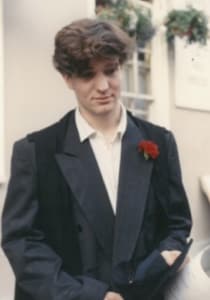
Over the summer between my first and second years, I decided to stick it out. I slowly began to realise that almost everyone was struggling with the workload and the topics. College life became somehow normal and its idiosyncrasies somehow normal. It even seemed natural that the first 3 years would be assessed through 8 exams in 4 days. I quite enjoyed that we had to wear a black suit and socks, white bow tie and a gown for each exam. My friends and I even took up the tradition of wearing a carnation on each day of the exams, starting off with a white one for the first exam and gradually darkening the colour to red for the final day. It was particularly during my final, research year that I felt I belonged. Spending long days cleaning and then trying to operate a particularly temperamental photoelectron spectrometer followed by evenings discussing the meaning of it all with a group of like-minded nerds helped me feel part of what is a very special and exciting place to live and study.
The ‘My Journey’ activity
This activity starts with an Acknowledgement of Country. The lecturer or tutor then briefly discusses their personal journey to the University before encouraging pairs of students and then tables to do the same. The exercise is ideal for the first class and replaces more traditional “ice breakers”. After this discussion, the teacher may then want to briefly discuss their own first experience of university. It is an example of a social transition exercise, where students and their teachers engage in an interactive and meaningful conversation and reflect on the importance of place in the lives.
You can capture and map your journey using an interactive tool. This builds a combined view of your journeys as well as displaying the flags from everyone’s birthplace. The journeys and backgrounds of your students can be compared to those of the whole University, to show how diverse we are overall.
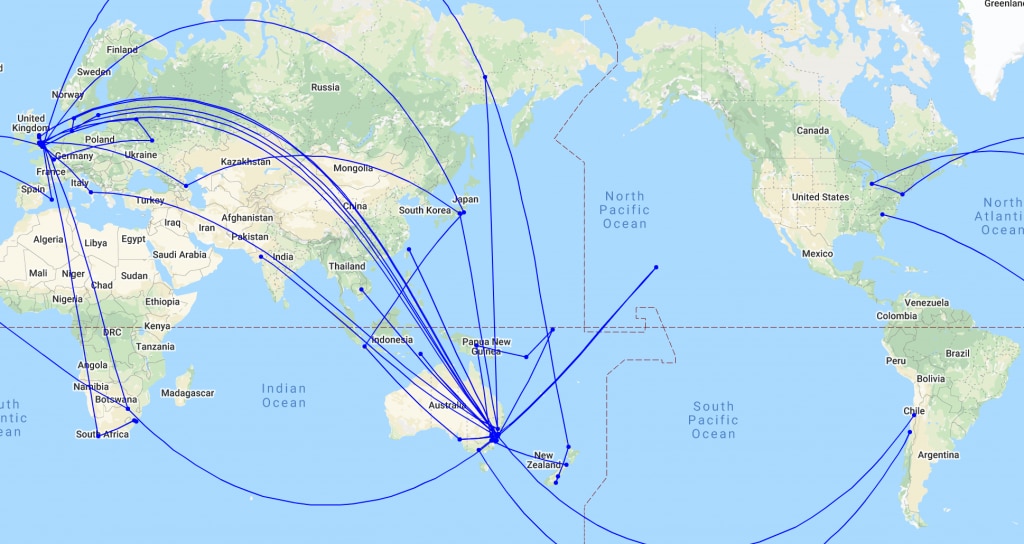
Transition units of study
Given the importance of developing a sense of belonging as part of the transition, the Student Experience Strategy recommends that “every undergraduate and postgraduate student encounters dedicated and context-appropriate support, academic and social transition to the University” through the introduction of ‘transition units’. These will include the use of appropriate interactive and collaborative learning designs and a supplementary social program to foster diverse peer interactions. In some degrees, such as those where core units taken by all students already run, these elements will be built into these existing units. In others, especially those where students have considerable freedom to choose, they will need to be built into a number of units or into new dedicated units.
The details of the academic and social transition program are currently being designed for the units to run in 2021. Activities, including that outlined here, will be trialled in existing units in 2020. Around 400 tutors and coordinators will be trained in them over the coming weeks.

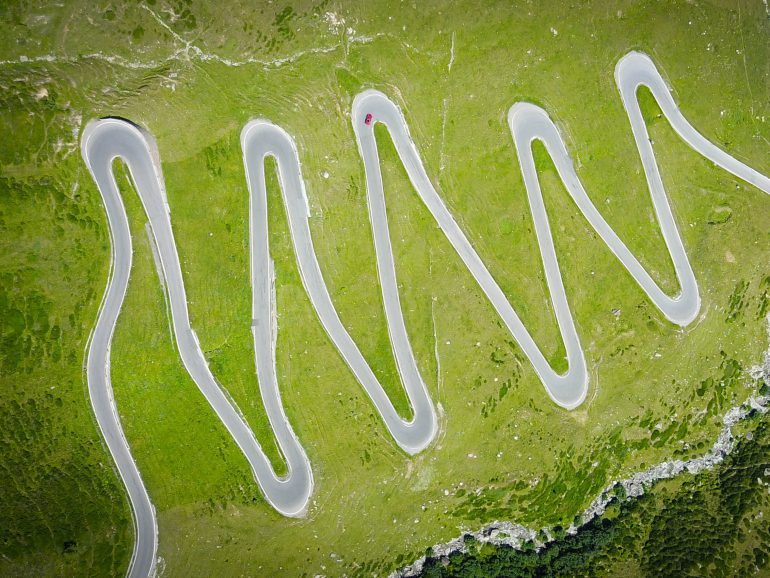



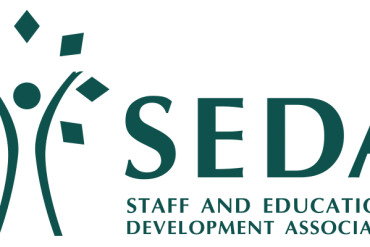
6 Comments